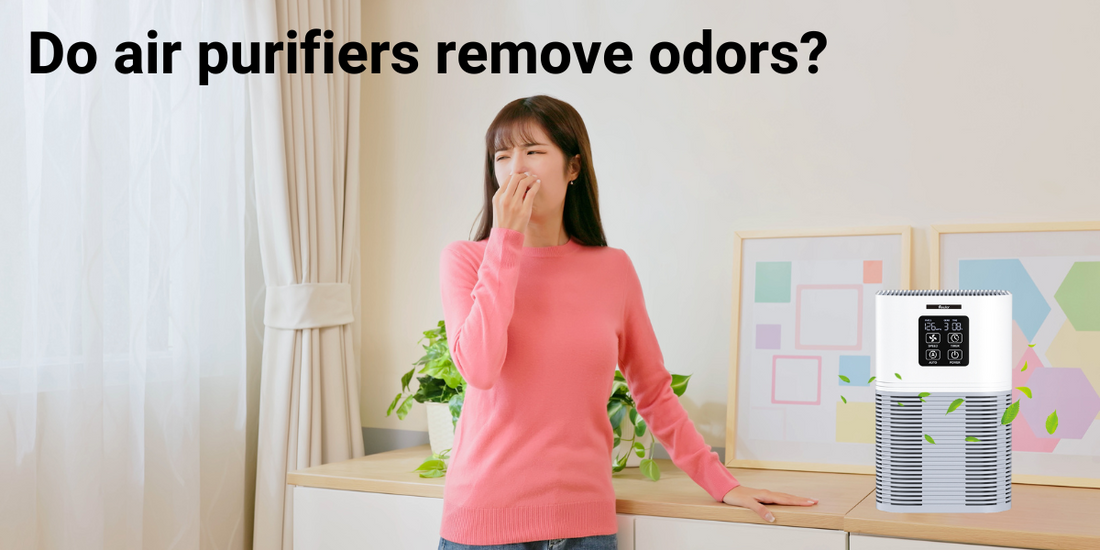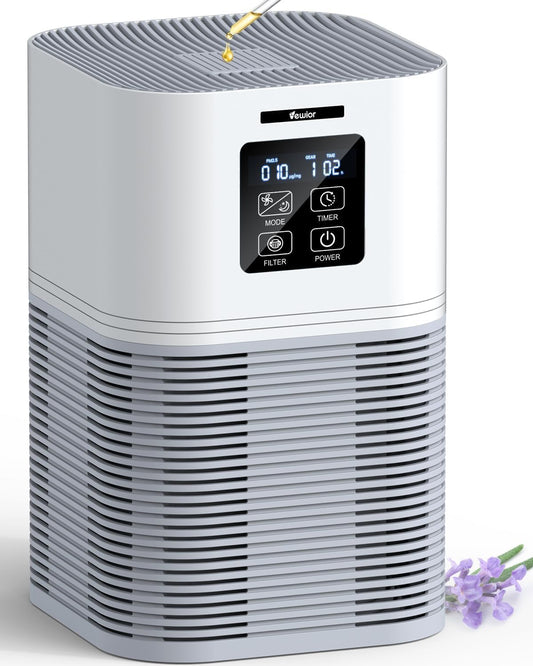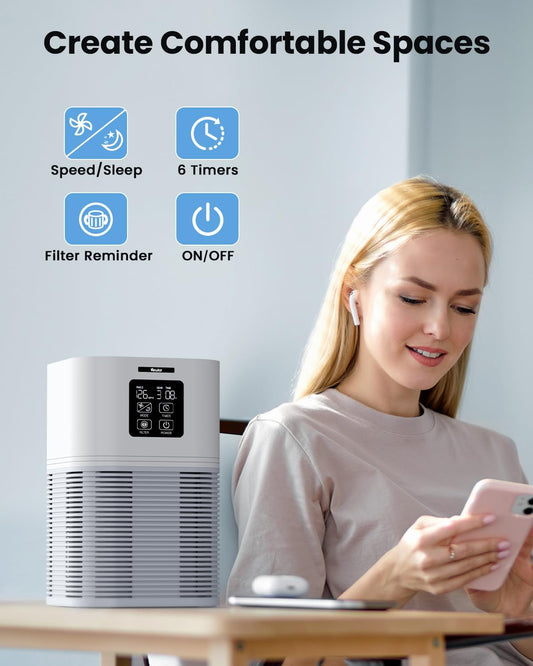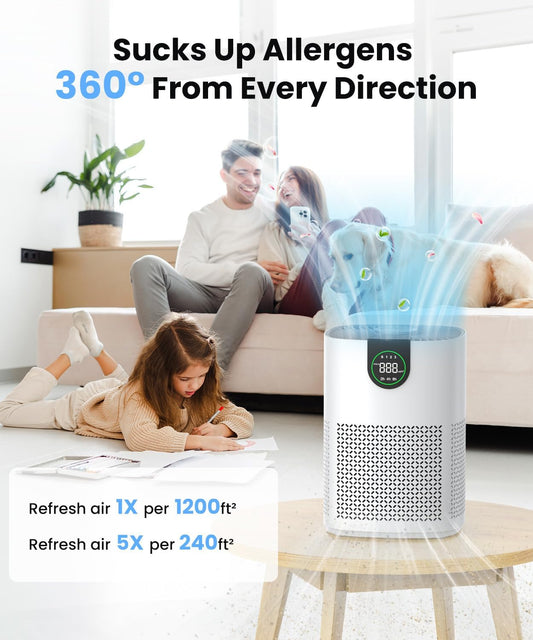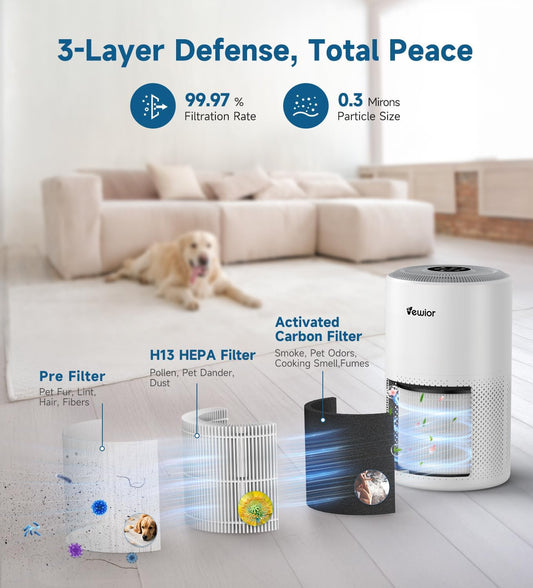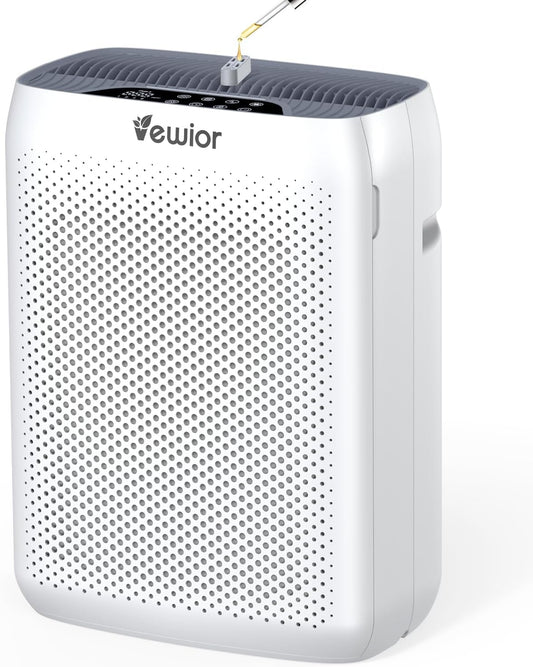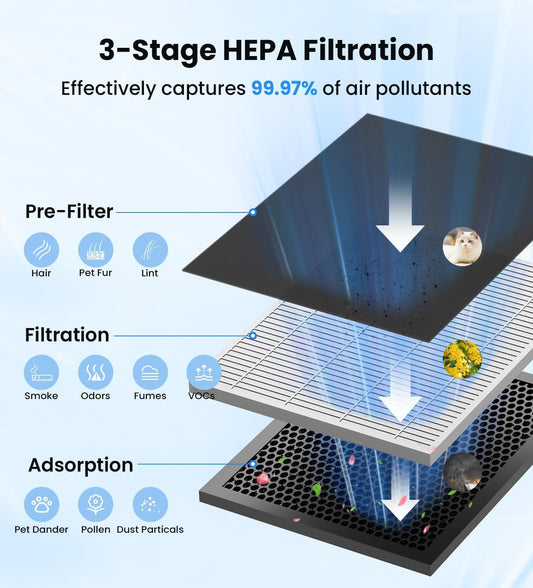Air purifiers have become increasingly popular in recent years, as people seek ways to improve indoor air quality and create a healthier living environment. One common concern is whether air purifiers are effective in removing odors. This article aims to explore the effectiveness of air purifiers in eliminating odors and provide valuable insights into their functionality.
Understanding Odors
Before delving into the role of air purifiers in odor removal, it's essential to comprehend the nature of odors. Odors are caused by volatile organic compounds (VOCs) and airborne particles released from various sources such as cooking, pets, tobacco smoke, or chemical products. These odorous particles can linger in the air and contribute to an unpleasant indoor environment.
The Functionality of Air Purifiers
Air purifiers are designed to improve indoor air quality by capturing and filtering airborne pollutants. While their primary purpose is to remove particles like dust, pollen, and pet dander, many modern air purifiers also come equipped with additional features to tackle odors effectively.
Filtration Mechanisms
Air purifiers employ various filtration mechanisms to remove odorous particles from the air. One common type of filtration used is a High-Efficiency Particulate Air (HEPA) filter. HEPA filters can capture particles as small as 0.3 microns with an efficiency of 99.97%, making them highly effective in eliminating odor-causing particles.
Activated Carbon Filters
To specifically target odors, air purifiers often include activated carbon filters. These filters consist of a porous material that absorbs odorous molecules, trapping them within the filter and preventing them from re-entering the air. Activated carbon filters are particularly effective in neutralizing odors caused by cooking, tobacco smoke, or pet-related issues.
Ionic Technology
Some air purifiers utilize ionic technology, which releases negatively charged ions into the air. These ions attach themselves to positively charged odor particles, causing them to drop out of the air and settle on surfaces. This process, known as ionization, can effectively reduce odors. However, it's important to note that ionizers may produce trace amounts of ozone, which can be harmful in high concentrations.
Ozone Generators
While not typically recommended for general home use, ozone generators are specifically designed to remove odors. These devices release ozone into the air, which chemically reacts with odor-causing molecules, neutralizing them. However, it is crucial to use ozone generators with caution and in well-ventilated areas, as excessive ozone exposure can be harmful to human health.
Considerations for Effective Odor Removal
To ensure optimal odor removal, it is essential to consider a few factors when choosing an air purifier:
- Room Size: Select an air purifier suitable for the size of the room where odors are a concern. Check the manufacturer's guidelines to determine the recommended room coverage for the device.
- Filter Replacement: Regularly replace filters according to the manufacturer's instructions. Over time, filters can become saturated and less effective in odor removal.
- Multiple Filtration Stages: Look for air purifiers that offer multiple filtration stages, including activated carbon filters, to target odors effectively.
- Maintenance and Cleaning: Clean the air purifier regularly to prevent the buildup of trapped odorous particles and ensure its continued efficiency.
Conclusion
Air purifiers have proven to be effective in removing odors, making them a valuable addition to any indoor environment. By investing in a high-quality air purifier equipped with advanced filtration mechanisms such as HEPA filters and activated carbon filters, you can enjoy a fresher, odor-free living space.

